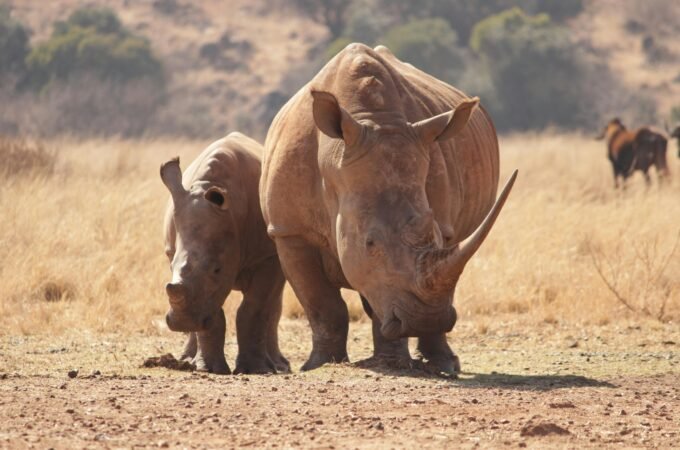
8 Tips on Trouble-Free Camping with a Large Group
Reconnecting with Mother Nature as a camper is always an amazing experience, and sharing it with a group of other outdoor enthusiasts is even more worthwhile. That said, group camping can be sometimes challenging as it requires a bit more coordination and planning. If you intend to share a getaway in the wild with a large group, there are a couple of considerations to take into account. In this guide, we’re providing our top eight tips for planning a big group camping.
1. Choose the best time
Although camping is great all year round, summer remains the most popular camping season. Fair enough, as the summer months have the warmest weather and provide ample opportunities to engage in a range of camping activities, such as hiking, fishing, or mountain biking. However, many campers still prefer camping in the winter, as although it might appear challenging, it still offers enormous advantages. Fewer crowds, no bugs, and incredible views are just a couple of them. Of course, cold weather camping requires more thorough preparation, so if you consider exploring snowy landscapes, check out this winter camping gear list.
2. Select a campground

For starters, decide on the location that can best meet the unique needs of your group. The choice is huge; however, all your options belong to one of the three categories:
- private campgrounds
- public campgrounds
- backcountry
Private and public grounds usually offer amenities such as flush toilets, showers, a kitchen, etc. Private grounds are the most expensive option. They range from luxurious glamping sites to basic tent pads. Public campgrounds are more affordable than private grounds; however, this often means fewer luxuries. If you decide to rough it in the backcountry, be ready to bring everything you’ll need, including water.
If you are camping newbies, it’s a wise solution to choose a private or public ground. A site with bathrooms, water, and electricity also makes sense if some of you are camping with small children. On the flip side, if your group members are likely to be loud and prefer to stay up after-hours, it’s a good idea to choose a secluded camping area. Finally, remember that popular campsites fill up quickly, so make your reservation as early as possible.
3. Designate a leader
While generating ideas can be a team effort, it’s better to leave all the coordination to one person. The thing is that if each of you does their own thing, or if too many people are responsible for essential trip details, there will be a greater risk of miscommunication, reservation mistakes, and ignoring critical details. That is why it’s recommendable to select a leader who will function as a point of contact for any vendors your group may need and keep everybody updated about any changes in the itinerary.
4. Assign duties
Of course, having a leader doesn’t mean that this person becomes responsible for literally everything concerning your trip. To make it all perfectly work, it’s a good idea to share responsibilities among different participants. This way, everybody is pulling their weight, and no one is responsible for too many aspects of the trip. For instance, you can delegate setting up the camp, food transportation, babysitting, cooking meals, cleaning up, arranging activities, and building the campfire to smaller teams. Also, it will save all of you a lot of space if you assign the participants bringing gear that the group can share, for example, games or cooking utensils.
5. Plan your meals in advance

A large group means a lot of food to bring, so make sure you have a plan for each day at camp and stock up on food you’ll need to prepare the planned meals. There are some different ways to handle meals during group camping. For example, your group can have one person who buys all food supplies and split the cost or assign buying different food to different participants. Everyone can take turns cooking meals for the group, or separate teams can be responsible for breakfasts, lunches, and dinners. Lastly, find out if any group members have food allergies and take care of options available for them.
6. Keep records of expenses
Don’t forget to keep track of all expenses while you’re preparing for the trip. You can use one of the mobile apps that streamline splitting bills with friends or create a spreadsheet and share it with other participants to enable everyone to update their expenses. Alternatively, you can appoint one person as the “accountant” who will record all reported expenses in a notebook and evenly divide them among the participants.
7. Secure comfortable accommodation
Needless to say that you might want to share larger tents rather than bring numerous smaller ones. To make sure everyone will be dry and comfortable, discuss who can bring larger shelters like 8 man tents and share them with other group members. Be highly accurate when you plan how to accommodate everyone so that nobody is left outdoors. A word of advice: if you are going somewhere with the potential for rain or snow, don’t forget to pack a rainfly, extra tarps, and rope.
Of course, if the weather is unsuitable for staying in a tent, look into securing a motorhome. What’s more, if you choose to buy your own motorhome for future trips, consider joining a motorhome community. A motorhome community has many benefits, including meeting a like-minded community, having support and advice on hand, and even finding exclusive discounts.
8. Ensure safety
Pack a huge first-aid kit stocked with medications that members of your group might need for your peace of mind. It’s also a wise solution when everyone brings individual first-aid kits. The most basic list includes waterproof bandages, gauze, headache remedies, diarrhea treatment, and antihistamines. Also, learn where the closest hospital to your campsite is and map out a route to be more efficient in case of an emergency.




